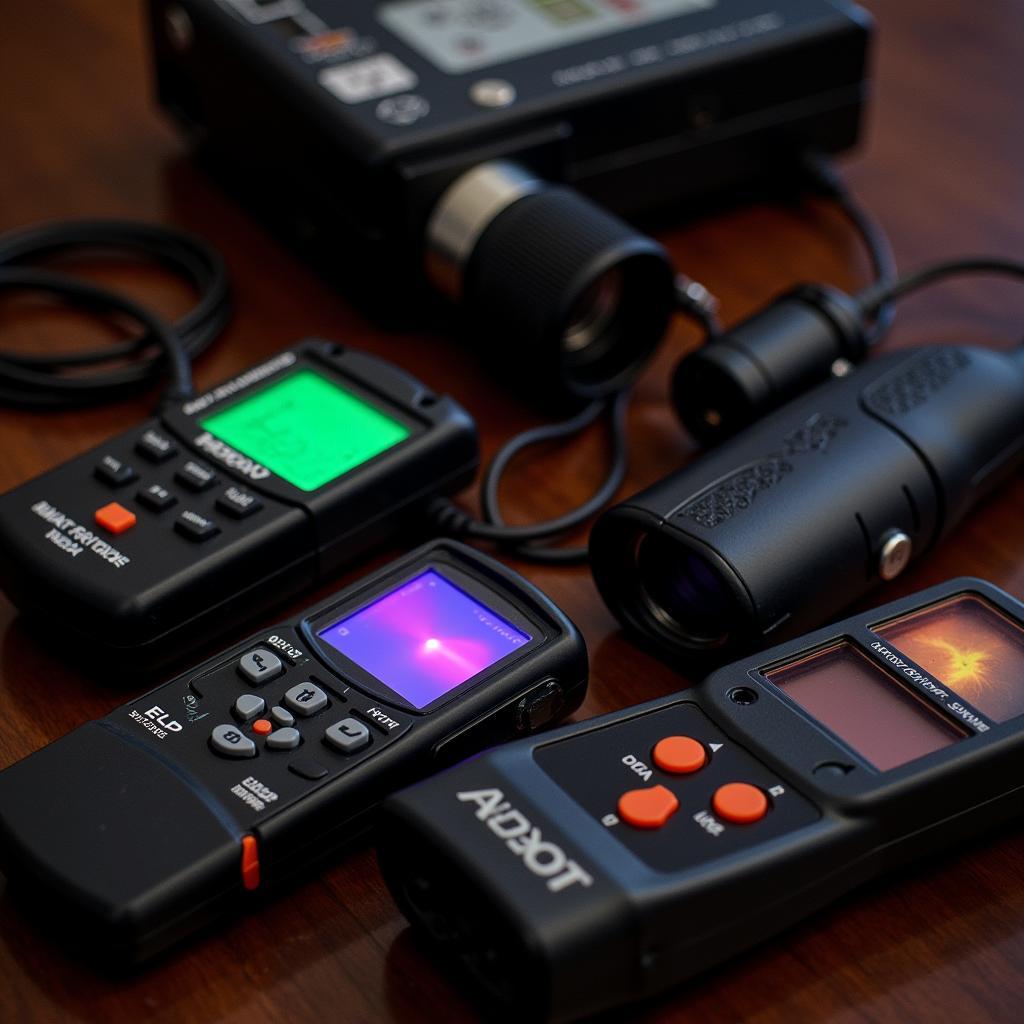Empirical research forms the bedrock of any credible investigation, and the paranormal field is no exception. While shrouded in mystery and often dismissed as mere speculation, the pursuit of understanding paranormal phenomena can benefit greatly from the rigorous application of empirical research methods. This article explores how empirical research can be applied to paranormal investigations, examining its strengths, limitations, and potential for uncovering truths hidden within the unexplained. empirical research partners
What Questions Can Empirical Research Answer in Paranormal Investigations?
Empirical research, at its core, relies on observation and experimentation to gather data and draw conclusions. This approach can be particularly valuable when exploring paranormal claims, which often rely on anecdotal evidence and subjective experiences. By employing systematic observation, controlled experiments, and statistical analysis, researchers can begin to distinguish between genuine anomalies and misinterpretations of natural phenomena.
One key area where empirical research can shed light is in the investigation of haunted locations. Rather than relying solely on personal accounts of ghostly encounters, researchers can utilize tools like EMF meters, thermal cameras, and audio recorders to collect objective data. This data, when analyzed rigorously, can help determine if there are measurable changes in the environment that correlate with reported paranormal activity.
Another application of empirical research in the paranormal field lies in the study of psychic abilities. Controlled experiments can be designed to test the accuracy of psychic readings, precognitive dreams, or telekinetic abilities. While the results of such studies have often been mixed, rigorous empirical research remains crucial for separating genuine psychic phenomena from chance occurrences, misinterpretations, or outright fraud.
Empirical Research Methods in Paranormal Studies
Numerous empirical research methods can be employed in paranormal investigations, each offering unique insights and challenges. Quantitative methods, focusing on numerical data, are useful for analyzing large datasets and establishing statistical significance. Qualitative methods, which emphasize in-depth exploration of experiences and perspectives, can provide valuable context and understanding of the human element within paranormal phenomena. empirical research methods
Some common empirical research methods used in paranormal investigations include:
- Observational studies: Researchers systematically observe and document paranormal activity in a natural setting.
- Experimental studies: Researchers create controlled environments to test specific hypotheses related to paranormal phenomena.
- Surveys and questionnaires: Researchers collect data on personal experiences and beliefs related to the paranormal.
- Case studies: Researchers conduct in-depth investigations of specific paranormal events or individuals claiming psychic abilities.
 Paranormal Research Equipment
Paranormal Research Equipment
Challenges and Criticisms of Empirical Research in the Paranormal
Despite its potential, empirical research in the paranormal field faces several challenges. One significant hurdle is the difficulty in replicating paranormal phenomena. Many reported events are spontaneous and unpredictable, making it challenging to design experiments that can consistently produce measurable results. Another challenge lies in the subjective nature of many paranormal experiences. Personal biases, expectations, and cultural beliefs can influence how individuals perceive and interpret events, making it difficult to separate genuine phenomena from psychological factors. what is empirical research in psychology
Critics also argue that the lack of a clear theoretical framework for understanding paranormal phenomena makes it difficult to design meaningful empirical research. Without a solid understanding of the underlying mechanisms that govern these phenomena, it can be challenging to formulate testable hypotheses and interpret research findings.
Conclusion: Embracing Empirical Research in the Pursuit of Paranormal Understanding
While the paranormal remains an elusive and enigmatic field, empirical research offers a valuable tool for exploring its mysteries. By adhering to rigorous methodologies and embracing both quantitative and qualitative approaches, researchers can strive to uncover the truth behind reported paranormal phenomena. Empirical research provides a pathway towards a more nuanced and evidence-based understanding of the unexplained, pushing the boundaries of our knowledge and challenging conventional perspectives. empirical research article
FAQ
- What is the main goal of empirical research in paranormal investigations?
- What are some common tools used in empirical paranormal research?
- What are the limitations of applying empirical methods to the paranormal?
- How can researchers address the challenge of replicability in paranormal studies?
- What are some ethical considerations in conducting empirical research on paranormal phenomena?
- Can empirical research prove or disprove the existence of ghosts?
- What role does psychology play in empirical Paranormal Research?
Common Scenarios and Questions
- Scenario: A homeowner reports unexplained noises and cold spots in their house, believing it to be haunted. Question: How can empirical research be used to investigate these claims?
- Scenario: An individual claims to have precognitive dreams. Question: How can researchers design an experiment to test the validity of these claims?
Further Exploration
For more information on specific research methodologies and case studies, explore these related articles on our website: what is empirical research article
Need Help with a Paranormal Investigation?
Contact us for assistance:
Phone: 0904826292
Email: research@gmail.com
Address: No. 31, Alley 142/7, P. Phú Viên, Bồ Đề, Long Biên, Hà Nội, Việt Nam
Our team is available 24/7 to provide support and guidance.